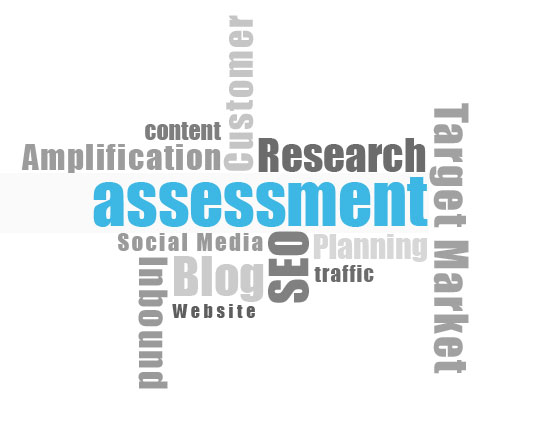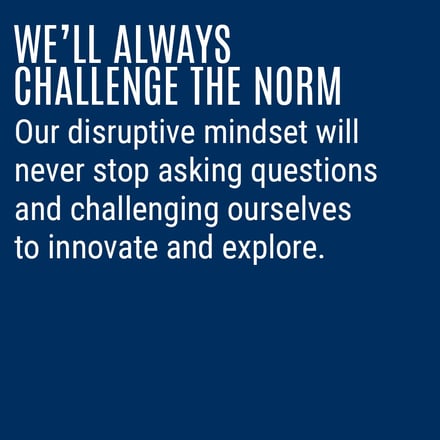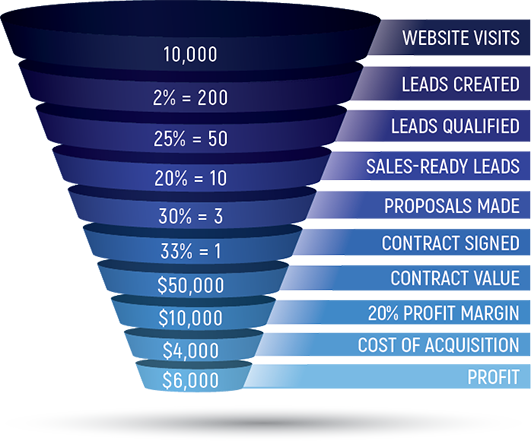
Revenue River is now an Instrumental Group Company. Learn more.
call us: 303-945-4341

Revenue River is now an Instrumental Group Company. Learn more.

HubSpot sells software, and they provide a free inbound marketing assessment. Agencies sell services packages aimed at helping you implement HubSpot’s software for better results. Every inbound marketing agency on the planet is offering a free inbound marketing assessment, just like HubSpot.
These are the questions we’re going to provide answers and advice around. With the proper preparation, you’ll be better equipped to evaluate both the value of
You can turn the tables, gaining valuable insights and evaluation points, once you have a better understanding of what to expect and prepare for. That’s our objective, to provide a comprehensive guide for people looking for help from inbound marketing to prepare themselves for whomever they choose for an inbound marketing assessment.

The best assessments are built from the ability to access meaningful data. In my experience, performing assessments for companies of all types, there are two types of assessments.
HubSpot has one objective in offering a free inbound marketing assessment: Selling software. They know that their best way to sell you software is to establish the very large gap between your goals and your plans. After all, a goal without a sound plan is really just a dream. By uncovering a massive list of missing elements in your plan they’ll subscribe the perfect software to help you meet your goals: HubSpot’s marketing automation software.
Agencies have two objectives in offering a free inbound marketing assessment. Their first objective is to uncover need and opportunity. Qualified agencies will dig deep into the data. Understanding your baseline key performance metrics will help them help you. As the baseline metrics are uncovered you’ll be able to have a meaningful conversation about campaign goals and your existing marketing plan.
The second objective marketing agencies have is to further the sales cycle. Make no mistake, anyone offering you something wants something in return. Agencies lean on assessments to qualify you, the potential buyer, and position themselves as experts. By asking qualifying questions, evaluating data, and offering tips and recommendations for improvement they know you’ll be more likely to trust their ability to solve.

Agencies need to understand what you do, (or don’t) have in place to generate traffic. Your prognosis for short-term success will certainly hinge on the foundation you have in place with key traffic generation elements.
Attracting traffic is only beneficial when you have the ability to convert those suspects into new contacts. Your ability to convert visitors into leads is the second step in acquiring new customers from your inbound marketing efforts.
Once you gain a new contact the evaluation process should begin. You can bet any real prospect is already evaluating you, so you need to be on top of your game to be successful. This takes a level of intelligence and sophistication that isn’t always present when people seek out an assessment.
This can be the elephant in the room for many inbound marketing agencies. While their pedigree is in creating leads, it’s not often that they actually have the capability of completing the sale. Instead, they lean on your sales team to perform once the lead is passed to them. Your sales team should in turn lean on a system to organize, manage, and communicate with open opportunities effectively. Any agency worth their salt will have a lot of questions about your sales process, sales system, and existing pipeline. They’ll want to know exactly what you do and don’t have setup, (and current results) so they can gauge their ability to truly help you deliver bottom-line results.
To succeed with digital marketing, demand generation, and new client acquisition strategies you’ll need a fairly robust technology stack. Strategies are only as good as your ability to execute, manage, and track results. This requires technology. Obviously, HubSpot has a great solution, and if you engage them in an assessment they surely have some ideas on what software you’ll need to add.
What you need to know is this challenge goes deeper than HubSpot. You’ll likely want to add and connect a host of powerful software packages to solve. When connected
A truly agnostic assessment will evaluate the existing technology you have in place honestly. They’ll let you know what legacy software can be retained, how to connect (or integrate) those technologies, and what needs to be added to accomplish goals. If you select the right agency to evaluate your organization you’ll find yourself trusting in them as technology experts, only implemented the necessary software at the necessary time, to reach your goal.
Execution Team: Your plans are only as solid as your ability to execute them effectively. While this is often the point that an agency will point out how they can help you fill gaps, it’s still valuable perspective. What you need to understand is that your team needs will likely go beyond your internal marketing department. If you’re entertaining an assessment we can assume you’re interested in some level of external support from a digital marketing agency. However, success with inbound marketing requires more than a well-rounded marketing team. Success with inbound marketing requires complete buy-in and participation from your sales department.
Recommendations for Improvement: Any assessment worth a crap is going to provide tips and recommendations for improvement. This is also the point of the assessment that you should expect to see the most value in. Your assessment should include a list of actionable next steps you can take to create a greater impact towards goals. At Revenue River, we blend tips and recommendations through the entire inbound assessment.

If you’re going to invest your time in evaluating agencies through assessment, you should come to the table prepared. You’ll do yourself a favor by preparing for your thoughts ahead of time.
Make sure you take the opportunity to ask a lot of questions during your assessment. You can certainly ask questions about any of the evaluation points listed above. You should also plan to go a little deeper. Remember, you should be assessing the agency or software provider too, asking qualifying questions to help you make a decision.
Here’s a short list of questions to consider asking HubSpot:
Here’s a list of questions to consider asking the inbound marketing agency:

A Pennsylvania transit software company increased their monthly lead generation by 250% after implementing Inbound Marketing with Revenue River. Highlights from our work together include:
163% annual increase in web traffic
250% annual increase in lead production
450% annual increase in SQL production
This client success story outlines the results we produced and the steps we took to get there. See how we devised, implemented, and executed an inbound strategy for Ecolane. Find out more by filling out the form.
Revenue River is a Diamond HubSpot Agency. We've been performing assessments, designing strategy, and implementing successful campaigns since 2012.
Is it time to take a closer look at launching a new marketing strategy? Sounds good to us, we're here to help. Enlist us to perform a diagnostic review and we'll schedule a consultation to review our findings together.
Fill out the form and we'll reach out directly.